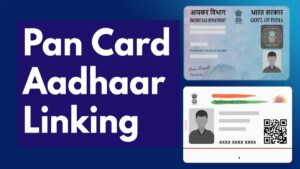RBI’s 5 New Rules Set to Transform CIBIL Score Reporting

RBI’s 5 New Rules Set to Transform CIBIL Score Reporting
Borrowers to get free annual credit reports, quicker dispute resolution, and clear reasons for rejections under RBI’s transparency push.
The Reserve Bank of India (RBI) has unveiled a set of five sweeping reforms to how CIBIL scores are accessed, updated, and used by lenders, aiming to make the credit system more transparent and fair to borrowers. The changes follow years of complaints about hidden rejections, outdated records, and lack of clarity over how scores are calculated.
A CIBIL score, a three-digit number between 300 and 900, reflects an individual’s creditworthiness and influences the chances of securing a loan or credit card. Higher scores mean better loan approval odds and lower interest rates, while lower scores often lead to rejections or costlier borrowing. But until now, many consumers discovered too late that their scores had dropped, often due to errors or delayed updates.
Free annual credit report:
For the first time, every individual will be entitled to one free credit report per calendar year from each credit bureau, including CIBIL. This allows borrowers to review their credit standing, identify errors, and detect any incorrect listings of missed payments without paying a fee.
30-day dispute resolution:
If inaccuracies are found, lenders and credit bureaus must resolve disputes within 30 days. Consumers must be notified of any corrections or updates, and if the timeline is not met, the case will be automatically escalated for further action.
Mandatory reasons for rejection:
Lenders can no longer simply decline an application based on a low score without explanation. They must specify which part of the credit report led to the rejection and outline steps the borrower can take to improve their score.
Faster score updates:
Loan repayment or closure data must now be reported to credit bureaus within 21 days, ensuring that cleared debts and repayments are quickly reflected in credit scores. This can significantly help applicants looking to secure a new loan soon after settling existing debts.
Uniform scoring standards:
The RBI has also instructed all credit information companies to follow a consistent scoring methodology, ensuring borrowers are assessed on equal terms regardless of which bureau’s report is used by a lender.
According to the RBI, these reforms will empower consumers, reduce the risk of erroneous rejections, and bring much-needed consistency to India’s credit reporting system. Financial experts say borrowers should make it a habit to check their reports annually and correct any errors promptly to maintain healthy credit scores.












